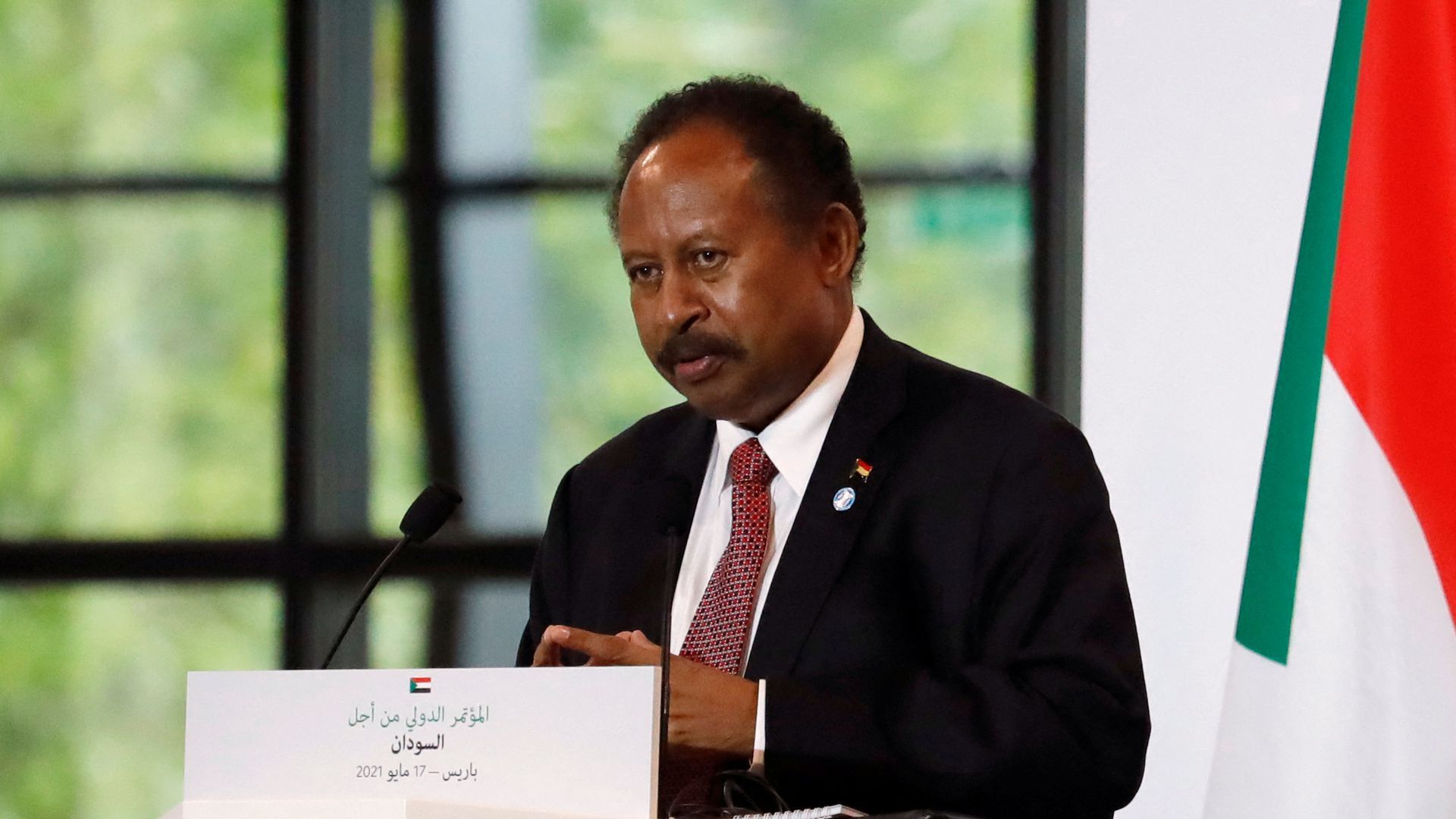Reports: Arab nations push for Hamdok to return to Sudan politics
Add Axios as your preferred source to
see more of our stories on Google.

Abdalla Hamdok. Photo: Sarah Meyssonnier/AFP via Getty Images
Sudanese media are reporting that several Arab countries are trying to promote a behind-the-scenes initiative to bring former Sudanese Prime Minister Abdalla Hamdok back to the political scene.
Driving the news: The army chief and chairman of the sovereign council Gen. Abdel Fattah al-Burhan appears unable to bring about any form of political reconciliation amid persistent waves of street protests and rising casualties among demonstrators.
Catch up fast: Sudanese military leaders deposed Hamdok and placed him under house arrest last October, prompting mass protests and derailing the country's fragile transition to democracy.
- Military leaders described the coup as a "course correction."
- A power-sharing agreement was reached last November to reinstate Hamdok as prime minister, but the pro-democracy movement rejected the deal and protests continued.
- Hamdok resigned in January.
The big picture: Several Arab countries are trying to build a new power-sharing government between civilians and the military, according to press reports in Sudan.
- Burhan visited the UAE in recent days and met with Abu Dhabi Crown Prince Mohammed bin Zayed. The Emiratis are a key player in trying to break the political deadlock in Sudan.
- The Sudanese sovereign council said in a statement that bin Zayed promised “large deposits" in Sudanese banks and the establishment of developmental projects to boost the Sudanese economy.
Hamdok, who declined to comment, reportedly met with Burhan in Abu Dhabi during his visit.
- But a source who is in constant contact with the former prime minister told Axios that Hamdok vehemently denies intentions of assuming any political position in Sudan. The military did not comment.
State of play: African Union special envoy to Sudan Mohamed El Hacen Lebatt warned at a press conference in Khartoum last week that the country is in “grave danger” if political players fail to quickly reach a consensus that would bring back the constitutional order that existed prior to the Oct. 25 military coup.
- Earlier this year, the UN Integrated Transition Assistance Mission in Sudan, headed by Volker Perthes of Germany, launched a series of meetings with hundreds of Sudanese stakeholders with the goal of breaking the political impasse and facilitating a dialogue that would eventually lead to an agreement.
- The gloomy political picture is coupled with a deteriorating economy driven by the suspension of international aid in the wake of the coup.
- The Sudanese government has decided to devalue the Sudanese pound in order to bring about parity or exchange rate with the black-market rate — a move that is all but certain to push up prices of goods and services. This comes in addition to an expected rise in taxes this year.
What to watch: Sudan is currently torn between some street protesters who insist the military totally relinquish rule to civilians and a military that says it will only hand power to an elected government.
- Burhan, however, has recently hinted that he is open to accepting a civilian government formed through "national consensus" without giving details.
